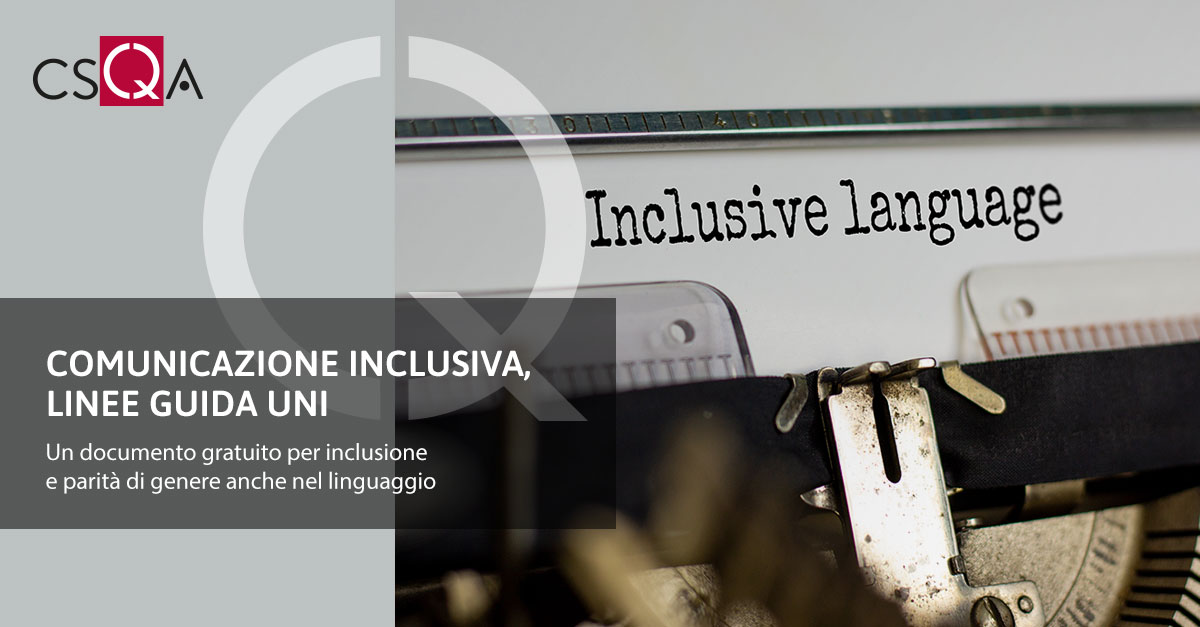 What does neutral language mean? And above all, how to apply it?
What does neutral language mean? And above all, how to apply it?To provide clear and simple answers, UNI has published "Inclusive communication. Guidelines for gender equality in language " , in the belief that a conscious use of words can concretely contribute to the cultural change that we all hope for.
Our beautiful Italian language is not "neutral".
Its grammar, in fact, does not provide for the neutral gender like some languages of the past (for example Latin) or of the present (English).
Furthermore, in a historical and socio-cultural context certainly not oriented towards the theme of inclusion, language has always represented a vehicle - even unconsciously - of a strongly masculine vision of the world.
This is demonstrated, for example, by the terms that designate professions: although the Italian language also includes their feminine declination, their use is not so common . They say that it "sounds strange", when in fact it is a prejudice linked to a typically patriarchal culture that struggles to include women, not only in language but within society itself.
Hence the need to push people to use words that concretely reflects gender equality.
This is why UNI has created this document to trigger - internally but also outside the organization itself - this important change. “… Words help to guarantee inclusion, equity, full role for every person , regardless of their gender, in a world done well….” Gianna Zappi, Deputy General Director of Sustainability and Valorization of UNI, testifies.
The document, which can be freely downloaded , contains useful information and references to formulas and practical examples to be used currently in the creation of any type of document (not only technical-specialist - standards, Reference Practices, Technical Reports, etc. - but more commonly informative) . The work concludes with a bibliographic reference to important texts in the "find out more" section.
UNI's intent is, therefore, to take up the challenge to create a more inclusive society, also through language and a "new" and conscious way of using words.
A language that does not exclude, that does not limit but rather places each person at the center without discrimination based on gender, ethnicity or ability, and which can help break the prejudices and stereotypes that words have built up over time. (Source: www.uni.com/ )